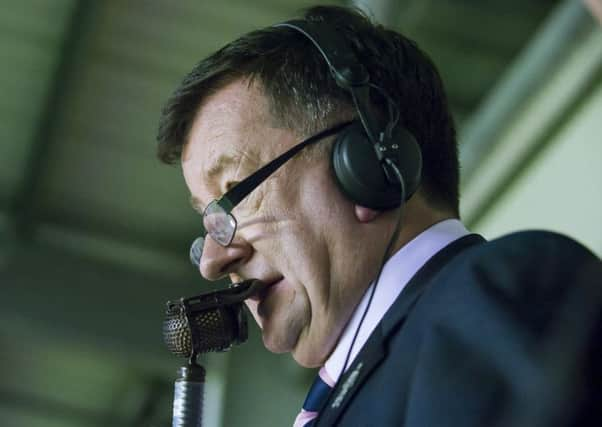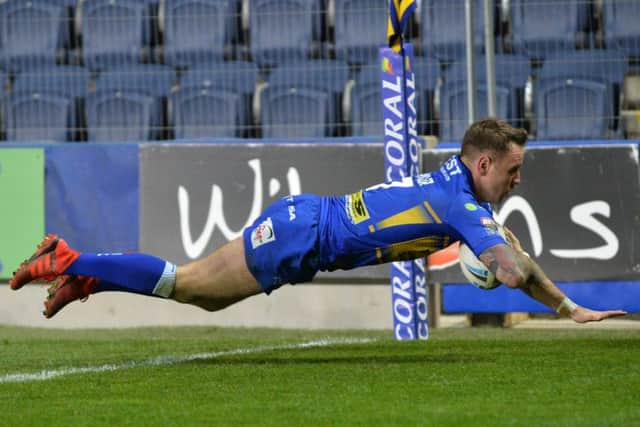Peter Smith: Why less can be more when it comes to the Easter rugby league schedule


The law makers are engaged in a constant quest to make the sport faster.
This year the shot clock – limiting the time taken at scrums and drop outs – has done that and the game is better for it.
Advertisement
Hide AdAdvertisement
Hide Ad

Alongside that, players are having to do longer minutes on the field now substitutions have been reduced from 10 to eight.
Advances in sports science and conditioning techniques mean every year full-time players get that bit bigger, faster and stronger and, consequently, the collisions are harder and more damaging.
Yet, the code persists with the tradition of two games over the Easter weekend.
This is regarded as one of the most lucrative times of the season and derby matches usually guarantee healthy attendances.
Advertisement
Hide AdAdvertisement
Hide AdWhat isn’t healthy is the state of players at the end of it.
Many will be facing four games in 15 days and, given the high-impact nature of the sport at the top level now, few will come through unscathed.
Naturally, the action at the end of Easter will be of lesser quality than that before it, so fans get short-changed.
The Easter pile-up has an effect in the weeks leading up to it and afterwards as coaches rest players or are forced to leave out anyone who picks up a knock and therefore the standard of the competition suffers.
Advertisement
Hide AdAdvertisement
Hide AdOne answer to why England/Great Britain lag behind Australia – and often New Zealand – at Test level lies in the extra workload players here are subject to.
This is week six of the NRL season, out of 25. Betfred Super League reaches round 11 today and drags on over 29 weeks.
That is unnecessary for a 12-team competition.
Twenty-two league matches, plus play-offs and the Challenge Cup – scrapping loop fixtures and the Magic Weekend – would provide a more balanced season and put less strain on the players.
Television requirements could be met by staging one round over the entire weekend, with games on Thursday through to Monday, but teams playing only once.
Advertisement
Hide AdAdvertisement
Hide AdThe demands are even tougher for teams in the Championship, most of which are part-time.
It is hard enough playing twice in four days, but combining that with a full-time day job is even more daunting.
If Super League was staged on one of the bank holidays and Championship on the other, that would be an opportunity to give the lower-division competition a boost.
The sport’s governors are aware of the toll two games in less than a week takes.
Advertisement
Hide AdAdvertisement
Hide AdFor the rest of the year it is considered unacceptable – which is why clubs required to play on a Thursday Sky-televised game can insist their previous match is played on a Friday or Saturday.
However, clubs aren’t awash with cash and everyone wants a home game over the holiday period, so the goal posts are moved.
Rugby league has yet to catch on to the fact less can sometimes be more.
Fewer games would lead to a rise in quality and, if that message can be got across to supporters, a rise in attendances and therefore a financial boost.
Advertisement
Hide AdAdvertisement
Hide AdThe Easter period also asks a lot of fans who are expected to dig deep into their pockets for – owing to the reasons already outlined – an inferior product.
Tradition is all well and good, but rugby league is known as an innovative sport and Easter is a rare occasion when it remains rooted in the past.
This Easter, specifically Friday’s derby between St Helens and Wigan Warriors, marks the end of an era as long-serving commentator Eddie Hemmings hangs up his mic.
He may not be everybody’s cup of tea, but Hemmings – who has been Sky television’s voice of the sport since 1990 – has been an indefatigable promoter of rugby league and often something isn’t truly appreciated until it is gone.
Advertisement
Hide AdAdvertisement
Hide AdLess familiar, but equally influential, is Sky’s rugby league producer Neville Smith.
Smith, who revolutionised the way rugby league is broadcast, is also stepping down at Easter and will be a tough act to follow.
Hemmings and Smith will be missed and deserve to bow out with the sport’s thanks and best wishes.